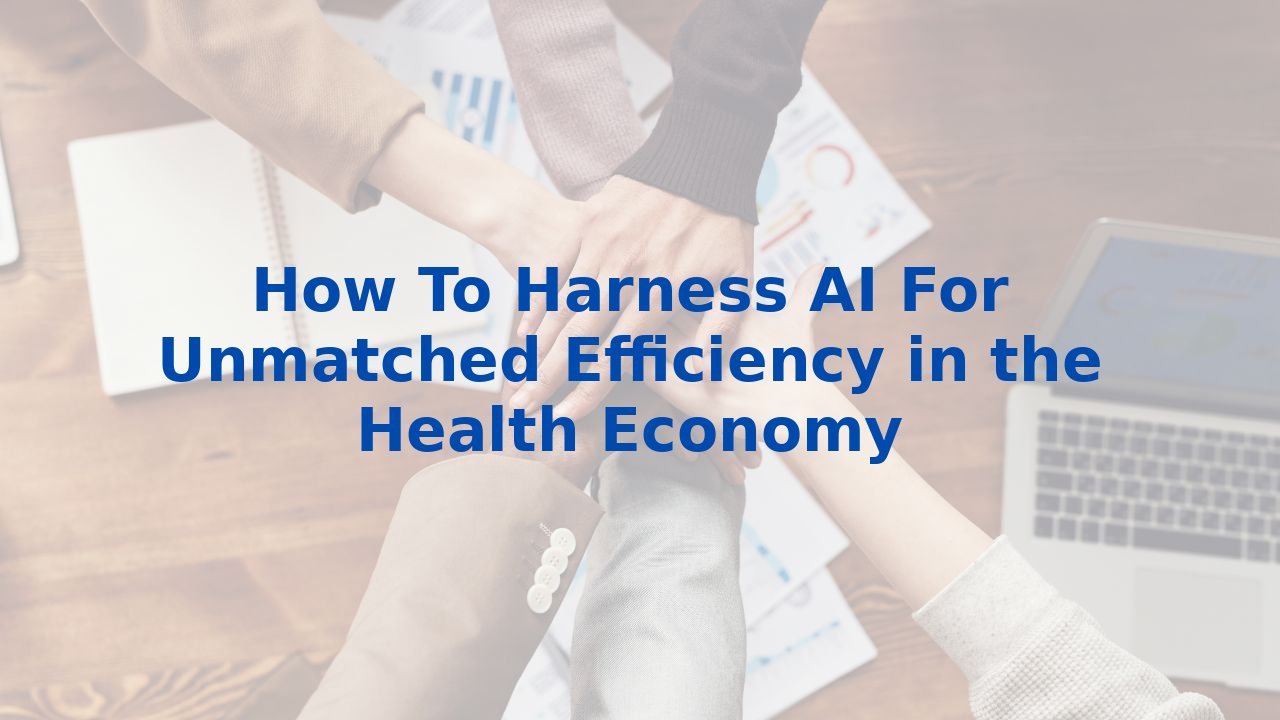How To Harness AI For Unmatched Efficiency in the Health Economy
The Unstoppable Force of Innovation in the Health Economy
In today's fast-paced environment, innovation shines as the most formidable driver of the health economy. Organizations that embrace innovative technologies—particularly artificial intelligence (AI)—stand to reap substantial benefits, not just in terms of profitability, but also in operational efficiency. The integration of AI into business processes transforms existing methodologies, making them more efficient and effective.
Understanding Business Processes in the Health Sector
Business processes lie at the core of any successful organization. They encompass a series of tasks and activities that help to create a product or service. In the healthcare sector, these processes can include patient management, treatment protocols, supply chain logistics, billing, and compliance with regulatory standards. When these processes are optimized, healthcare organizations become more agile and responsive to market dynamics.
Enhancing Patient Management through AI
One of the most significant areas in the health economy ripe for AI enhancement is patient management. Traditional systems often require extensive manual input, resulting in delays and increased potential for error. AI can automate patient scheduling, manage electronic health records, and even predict patient needs based on historical data. By streamlining these processes, healthcare providers can reduce waiting times and improve patient satisfaction, enabling them to focus on delivering quality care.
Optimizing Supply Chain Logistics
Supply chain logistics in healthcare are complex and often cumbersome. AI can analyze vast amounts of data to forecast inventory needs, reduce waste, and negotiate better supplier contracts. By leveraging predictive analytics, healthcare organizations can ensure that they are well-stocked with the necessary supplies, thereby minimizing delays in treatments and procedures. This enhanced efficiency not only reduces costs but also improves overall patient care.
Streamlining Compliance and Billing
Healthcare compliance and billing processes are notorious for their complexity. Mistakes in billing can lead to significant financial losses and strained patient relationships. AI-driven tools can analyze billing codes, automate claims processing, and ensure compliance with healthcare laws. By implementing AI solutions, organizations can mitigate the risk of errors, improve cash flow, and enhance operational efficiency.
The Overall Benefits of AI in the Health Economy
The ability of AI to enhance these various business processes translates into a plethora of benefits for healthcare organizations. Here are just a few:
- Increased Efficiency: By automating routine tasks, AI frees up valuable resources, allowing employees to focus on more complex and creative aspects of their work.
- Improved Decision-Making: AI tools can analyze data faster and more accurately than humans, providing insights that drive better decision-making.
- Enhanced Patient Care: With streamlined processes, healthcare providers can offer more timely and personalized care, leading to better patient outcomes.
- Cost Reduction: Automation and predictive analytics reduce operational costs, ultimately leading to improved financial performance.
Training Employees to Harness the Power of AI
While the adoption of AI technologies is vital, it is equally critical to equip employees with the necessary skills to leverage these tools effectively. Training programs tailored for AI can empower the workforce with a fundamental understanding of how to interpret data, make informed decisions, and utilize AI systems. This elevation in skills is not just beneficial for individual career growth; it also strengthens the organization’s capabilities.
The Benefits of Employee Training for AI
Here are some compelling reasons why investing in employee training is invaluable:
- Increased Adoption Rates: The more familiar employees are with AI tools, the more likely they are to use them effectively.
- Higher Engagement: Training fosters a culture of continuous learning, boosting employee morale and engagement.
- Innovation Stimulation: Well-trained employees are more likely to experiment with new ideas, further driving innovation within the organization.
Conclusion
The health economy stands to gain significantly from innovations sparked by AI. By integrating AI into various business processes, organizations can streamline operations, reduce costs, and enhance patient care. To fully exploit these advantages, investing in employee training for AI is not just an option—it’s a necessity. Ensure that your workforce is empowered with AI skills to help navigate the future of healthcare effectively. Together, innovation and training create a powerful synergy that can propel an organization forward, reaffirming the notion that innovation is indeed the strongest driver of the health economy.
To learn more about comprehensive AI training solutions, explore options that can equip your entire workforce with essential AI skills here.



